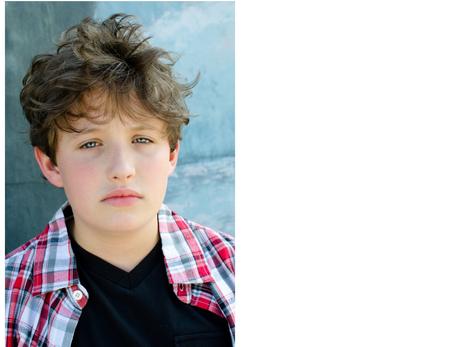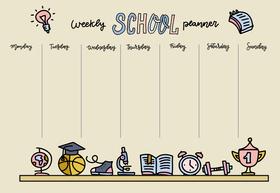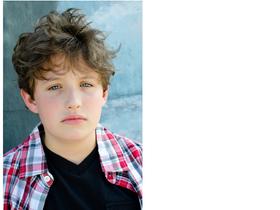First of all, let's understand what a therapeutic school is. A therapeutic school is a special school designed to help troubled children, typically teenagers, with various emotional and other problems. Therapeutic schools come in a variety of forms. They can be non-residential and residential. Which kind of therapeutic school is appropriate for your child depends on a variety of considerations. For a detailed description of the various types of therapeutic schools, see Therapeutic Program Descriptions on the Independent Education Consultants Association's website.
When to consider a therapeutic school
As a rule, parents probably should consider a therapeutic school for a child challenged by emotional, behavioral, substance abuse, or academic issues, or any other challenge that the local public school cannot handle effectively. In other words, she cannot receive the consistent treatment and individual attention she needs in a local school and the home setting. Whether to send the child away to a school with a highly structured environment where she will receive the treatment she needs 24/7 is something you should discuss in-depth with a professional psychologist. Once you understand and have accepted the diagnosis and the optimal treatment recommended for your child, hire an educational consultant to help you identify schools that will suit your requirements. Hiring a professional to assist you with this task is just as important as hiring an attorney to review a real estate contract or help you write your will. You know what you want. The professional will make it happen.
The Admissions Process
Admissions under the supervision of a consulting physician or other professionals can occur at any convenient time. You don't have to wait for once-a-year admissions deadlines as you do with typical day or boarding schools. Determine what the problem is. Identify a school that can turn things around. Pay for it. Those are the broad steps you will take to get your child into a therapeutic school.
The Diagnosis
How do you know for sure if you should consider a therapeutic school for your child? It makes good sense to consult with your doctor and other professionals to discuss the situation if your child has any of the following symptoms or issues:
- Substance abuse
- Violent or threatening behavior
- Defies authority
- Refuses to follow the rules or take guidance
- Poor grades
How do the programs work?
Each therapeutic school has its proprietary treatment procedures and philosophy. But most concentrate on providing a highly-structured, isolated environment in which your child can learn new behaviors. Therapeutic schools offer the intensive support and encouragement necessary to eliminate destructive, bad habits and replace them with new, building behavior patterns, confidence. They accomplish this in many ways, including group and individual therapy sessions.
How long does this take? It varies with each child. The typical stay is at least a year, but a more extended stay may be necessary to achieve the desired results. Besides, students frequently arrive at a school with significant gaps in their academic work. It is not always easy to predict how quickly they can make up those deficiencies.
This video offers an overview of a therapeutic school.
What do therapeutic schools cost?
Because the schools provide therapeutic services as well as academic instruction, they tend to be pretty expensive. Monthly charges of $6,000 or more are common. Also, you can expect to pay for medications and specialized treatments, which may be necessary.
Where can I find schools?
Start by searching this site with the keyword therapeutic Read the articles you can find on sites like Therapeutic Boarding Schools and The National Association of Therapeutic Schools and Programs. Ask professionals such as doctors and educators for their advice. Always visit schools and understand fully how their programs work.
The following video is from the National Association of Therapeutic Schools and Programs convention.
Identifying a therapeutic school for your situation
I have always said that the best school for your child is the one with the best fit. By that I mean the school meets your needs and requirements and is a place where your child will be happy. Now, when thinking about sending your child to a residential therapeutic school, your child's happiness becomes somewhat less important, depending on what treatment your psychologist has recommended. What we are talking about is tough love. Tough love is a nerve-wracking approach for parents to take. You have to tune out all the negative and the hysterics that will seem to dominate the conversation and focus on the positive outcome you want for your child. Because therapeutic schools come with a wide variety of programs, you must take the time to confirm that a specific school's program and reputation meet your requirements. When remediating academic progress is the main issue, you need to evaluate schools that offer solid academic remediation. If you are dealing with substance abuse or behavior issues, look for schools that provide effective, proven programs in that area.
Qualifying schools
Once again, your educational consultant's expertise and opinion should guide you in determining a school's ability to deliver the results you require. Some of the items on my checklist include accreditation, financial strength, and reputation. Schools cannot hide anymore. Social media offers you and me a window into a school's activities and, in an anecdotal way, its reputation. I say anecdotal because somebody's post on Facebook or Reddit is a personal opinion. However, where there's smoke, there usually is fire. So, when you see that a school has lots of negative comments, a poor rating with the Better Business Bureau, and has lost its accreditation, you probably should be looking elsewhere.
Expectations
Set reasonable expectations of what the school should deliver. It takes time for a child to adjust to his new environment with its unfamiliar rules and routine. After that period of adjustment, you should begin to see some progress as the school deals with the challenges your son faces. In addition to offering the professional psychological services your son needs, most schools work with their students to get the academics back on track as well.
Questions? Contact us on Facebook. @privateschoolreview















